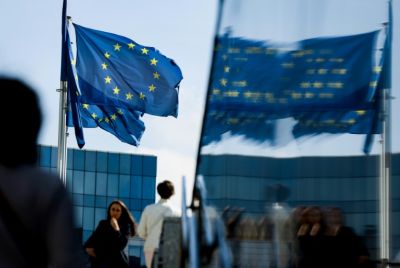UK Inflation Dips But Rate Rise Still Forecast
British annual inflation cooled slightly in September, official data showed Wednesday, remaining close to a nine-year peak that still risks a UK interest rate rise next month.
The annual inflation rate fell to 3.1 percent from 3.2 percent in August, which was the highest level since early 2012, according to the Office for National Statistics.
Despite the headline figure easing, analysts still expect the Bank of England to next month raise its main interest rate from a record-low level of 0.1 percent.
"As the dip... still left inflation above the 3.0-percent rate the BoE forecast back in August, it's unlikely to significantly reduce expectations that the BoE will raise interest rates before the end of the year," said Paul Dales, chief UK economist at Capital Economics.
Analysts noted that inflation dropped only because a government scheme one year earlier encouraging people to visit restaurants had dropped out of the calculation, adding that the annual rate was forecast to rise again in the coming months.
High inflation is weighing on companies and consumers globally, while rate tightening is used by central banks to try and dampen price rises.
"Global shocks have pushed up prices around the world, and we are working with businesses and international partners to address these pressures," British finance minister Rishi Sunak said following the latest UK inflation data.
Prices of raw materials as well of finished products and services are rising sharply as economies reopening from pandemic lockdowns struggle with supply constraints.

Energy prices in particular are surging, in some cases causing companies to reduce or even temporarily pause operations.
"The latest (UK inflation) numbers don't include the petrol pump crisis or the most recent surge in energy prices, or indeed the knock on effects across the economy, so inflation will still get worse before it gets better," said Laith Khalaf, head of investment analysis at AJ Bell.
"Inflation is also being broadly felt, seeing as the biggest drivers are housing and transport costs, which are unavoidable for almost everyone in the country."
Britain faced petrol shortages earlier this month, partly caused by a lack of EU lorry drivers post-Brexit, that trigged queues and panic-buying at pumps.
Global bottlenecks and foreign workers leaving Britain also amid the pandemic have caused an acute shortage of lorry drivers, creating nationwide supply chain issues across the country.
The UK government last week eased rules to allow foreign lorry drivers to make an unlimited number of pickups and deliveries.
© Copyright AFP 2024. All rights reserved.





















